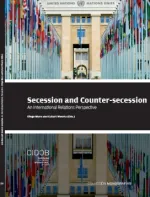Counter-secessionism and autonomy in the federal system of Germany: The case of Bavaria

Bavaria is a special case in German politics. The state has developed a strong regional identity. And this regional identity finds its political expression not only on the state level, but also on the federal level. It would not be surprising if one found a strong political movement for Bavarian autonomy or statehood. But the opposite is the case. Bavaria sees itself as a paragon of cultural, educational and economic success in a federal state. Why is this the case? Why did the strong sense of Bavarian exceptionalism not transmute into secessionism? One obvious answer is that there are incentives for political actors to play the counter-secessionist card or at least to give preference to strategies of political access that provide greater gains than outright secessionism. To explain the paradox of efficient regional identity politics in a non-secessionist environment this contribution first discusses the fate of the Bavarian separatist party, the Bavaria Party (BP).
It then moves on to an analysis of the politics of the Christian Social Union (CSU), the regional party that dominates Bavarian political life and has successfully accommodated the conflict between regional autonomy and a federal role for Bavaria. Here we find an explanation for the CSU’s internal mechanisms of counter-secessionism.